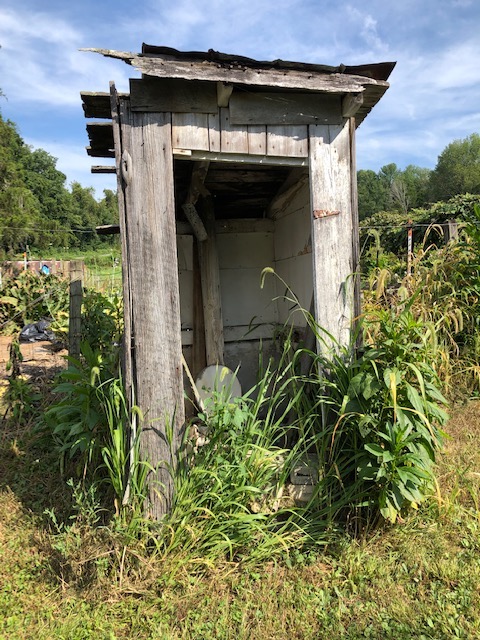by Mathew Barlow, UML Professor of Climate Science
I am chairing our department’s new DEI (Diversity, Equity, and Inclusion) committee. This is a very complicated issue and one that I have limited experience with, so I expect that at least some, if not much, of my thinking on this may be just wrong or misguided. As we figure out how to approach this critical issue, I will put some of my thinking here in public, for transparency and to allow any comments or critiques, which I am very open to.
The views here are purely my own and do not necessarily represent the committee, my department, or my institution.
In this first post, I’m going to give some initial overall thoughts and context of my own personal experience.
First, let me acknowledge that I am a middle-aged, heterosexual, married white male and so am about as un-diverse as it comes. On the positive side, people like me need to be doing a lot more diversity work, rather than leaving it to the people most impacted by the problem. On the negative side, I don’t have the experiences and perspective of an under-represented group, and so have a limited view of the issues.
I do have a working-class background, so I understand some of those challenges. For most of my childhood, my father worked in a factory and my mother worked on our farm. In my experience, people from more middle class and wealthier backgrounds really don’t understand the advantages of even a little bit of financial family help while in school, or as a safety net to fall back on. On the other hand, we owned our own property and never went hungry, so I’m sure that I don’t really understand the challenges of true poverty and hunger — and many of our students do struggle just to get enough food to eat.
Our farm even had a second bathroom:

Although it still had a door when I was a kid. And spiders and wasps – emergency use only.
As I look over what to focus on for DEI in the next year, I’m thinking … Well, first I’m thinking, this is a pandemic, I’ve got some major projects wrapping up and others just starting, how can I add possibly add one more thing? And then I think about who I see in class and in my profession versus the general population and am reminded about the scope and importance of this problem. From this angle, I see two issues going forward: 1) How do I stay on top of this, be accountable to this effort, as other short-term emergencies and commitments continue to dominate my day-to-day schedule? 2) Given my failure so far to work the full 24 hours in every day, what’s going to fall off my to-do list to accommodate a new activity? Still thinking about those.
Looking forward, my current thoughts are: what are our biggest problems as a department; what are the steps we can take in the next year to improve things (steps that are concrete, doable with our resources, and likely to make a positive difference); and what are the key systemic (institution and discipline-wide) issues that we need to look at for longer-term, bigger change? My next post will lay out some more details on starting to dig into those. The pandemic has exacerbated many problems, so we’ll be thinking in that context as well.
My (nearly) last point here is to emphasize that we want to be evidence-based and consider possible unintended consequences to potential actions. The list below provides some of the reading and resources we’re considering, which I expect to extend soon. For a personal perspective, I highly recommend the pieces in Forbes by one of the few Black scientists in the field (and newly-elected member of the National Academy of Engineering), Marshall Shepard; for instance,
Finally let my emphasize that I, and the committee as a whole, are very open to comments, suggestions, and critiques. While I will try my best, I expect to make mistakes and to need to correct and adjust things as we move forward on this important and complex topic.
Reading and some resources
Talking about Race in Earth and Space Science [includes many references]
J. C. Lerback, https://zenodo.org/record/3897373#.YCauES1h10s
Geoscientists of Color, list, https://docs.google.com/spreadsheets/d/1RQH8G1qkugdbV02_FnUkn27W7dzKlTK33F-Rc5st54w/edit#gid=0
NSF NCES Women, Minorities, and Persons with Disabilities in Science and Engineering https://ncses.nsf.gov/pubs/nsf19304/data
Bernard, R. E., and E. H. Cooperdock, 2018): No progress on diversity in 40years, Nat. Geosci., 11, 292–295, https://doi.org/10.1038/s41561-018-0116-6
Dutt, K., 2020: Race and racism in the geosciences. Nat. Geosci. 13. https://doi.org/10.1038/s41561-019-0519-z
Ledford, S. H., M. M. Monteagudo, A. N. Flores, J. B. Glass, and K. M. Cobb (2020), #GeoGRExit: Why geosciences programs are dropping the GRE, Eos, 101, https://doi.org/10.1029/2020EO145223
Saini, A., 2019. Superior: the return of race science. Beacon Press.
Fellowships for persons of color (POC) in STEAM (Science, Technology, Engineering, Arts, and Mathematics): https://docs.google.com/spreadsheets/d/1V_pvhqWliwqLhAVcXikxAEuJPD4mwwgl9LEgOnzN-zM/edit#gid=1417047090
